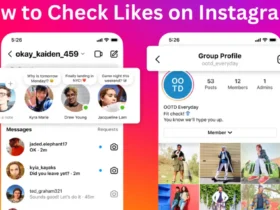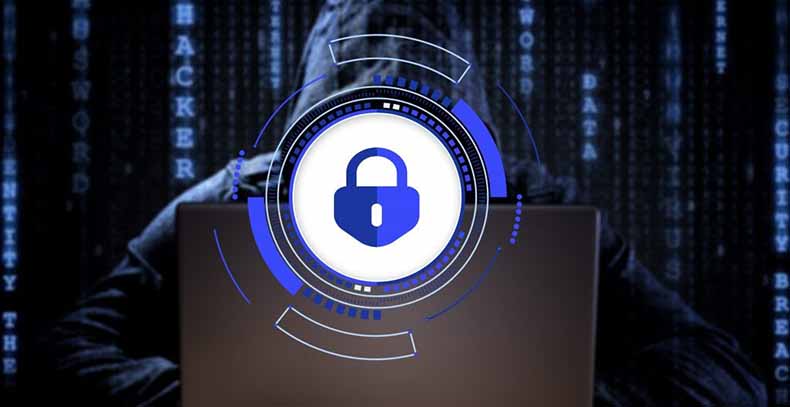11 Secrets That Will Make You More Secure On The Internet
When you use the internet, it is important to be private. You should practice good hygiene for your digital information. If someone hacks into your account, then they could steal your information. This can make you feel unsafe online.
It is scary that out there people are trying to take all your private information and it is hard to tell who has access to what. But luckily for us, we can always change our IP address if something bad happens online. Today we will talk about the secrets which we can apply to make ourselves secure and safer on the internet.
1. Start using VPN
Sometimes, we use Public-Wifi when we are out of the home. If you use the public internet, use a VPN. If you go to a cafe and they have Wi-Fi, don’t connect it without using a VPN. You do not know what security is on that network if you do not protect yourself with one.
People might be looking for your secrets. A hacker might try to find what you do on your computer. When you are on the internet, it is not safe for people to see. This is why you can use a VPN to make sure that this does not happen.
With a VPN, people cannot see your data even if they have access to the wireless connection. People use a VPN to protect their information. Promoters or trackers will not be able to find the person using the VPN.
Because they are using that company’s address, not theirs and this is the reason that people also use it to access material in a country where it is blocked, they use it for Netflix as Netflix is one of the top streaming services so they use VPN to unblock the restricted content.
2. Get an Antivirus
Antivirus software is like a guard for your computer. It protects your computer from bad things. Antivirus programs protect against actual viruses, not just malware or security risks. Ransomware can steal sensitive information and destroy your files, but antivirus software can stop it before it happens.
In theory, you can turn off your antivirus software and leave it running. Antivirus software needs updates from time to time. But in reality, you should check up on the computer sometimes to make sure that the program is green or yellow and not red or yellow. If it is not green or yellow, follow the guidelines to get it back on track.
3. Try strong and Unique Passwords
One way that hackers steal information is by getting username and password combinations from one place and trying those same combinations to see if they work. For example, hackers could get your username and password from an email provider.
It is a good idea to have a different password for every online account. That way, if one data breach happens, it will not affect your other accounts.
4. Never use the Save your Password feature
Above we were talking about strengthening your password and making it unique but the other mistake we often make is we use one of the features in which we save our credentials and web browsers get our password and we do this because this is helpful.
But some people use other programs to keep passwords, so they don’t have to remember them all. These programs usually help you find your passwords in the web browser too.
But it might not be safe if someone has bad software that can get into the program and steal your password there too. It can be better to have different passwords for each website, but then you would need many more of them, which would be difficult to remember but it would be secure.
5. Two-Factor Authentication
Two-factor authentication is a way to make your account more secure. In simple words you require two forms of identification, not only your credentials, to access your account.
Two-factor authentication is when you have to use more than one thing to prove your identity. One of them might be something you know, like a password. Another one might be something that is on your phone or an app on your phone.
It can also be something on your computer, like a code sent by text message to your phone and definitely, it makes it more secure so if someone tries to reach your personal data and they succeed in getting your passwords but it will be difficult to cross two-factor authentication.
If the data or personal information in an account is sensitive or valuable, and the company offers two-factor authentication, you should use it. Gmail, Evernote, and Dropbox are examples of online services that offer two-factor authentication.
6. Be careful on Clicking
Be careful when you click things. You could be clicking on something that is bad. Be careful with your email, phone messages, and Facebook posts because they might contain links to other things that are not safe.
Phishing sites can pretend to be websites you trust. But they are not. They want your information, like your username and password. Drive-by downloads can install viruses on your computer without you knowing it.
7. Update your PC on a regular basis
To avoid security problems and to keep your information safe, you need to make sure that your system is up to date. When you upgrade your system, this will close any vulnerabilities or holes that hackers can use against you to steal your information, and if you have the option of auto-updates it will be great, you must enable it.
8. Clear your Cache
To protect what is on your computer, you should delete browser cookies and clear your history on the computer. It is easy. To show the Delete Browsing Data dialog on a computer, press Ctrl+Shift+Del.
9. Start to Pay with Smartphones
The way credit card use is set up is not very secure. There are things you can do about it though. Instead of using your old, not secure credit card, you can use Apple Pay or an Android equivalent instead.
There are many different choices for apps that you can download that will help with this. Setting up your phone as a payment mechanism is usually quite straightforward.
When you start the app, take a photo of the credit card, and straight after then you can buy things or you can do any transaction you want to do.
10. Lock Your smartphones
It’s important to take the same precautions with your cell phone as you would with your computer. Each time you log in, use a password, or better yet, utilize your fingerprint or TrueKey.
To avoid other people from seeing your data, many cell phones now include a function that deletes all of it after a specific number of failed logins. You can also learn more about how to increase your phone’s security.
11. Use different accounts
People mostly make an id and use it for all the places this is wrong you must have different ids for particular places. Let suppose you have started a job in the new firm you just created a new id for it.
This gives you clarity and is more secure rather than this that you use them on for all. This also makes it easier to stay organized and not get too many emails in one account.








Leave a Reply